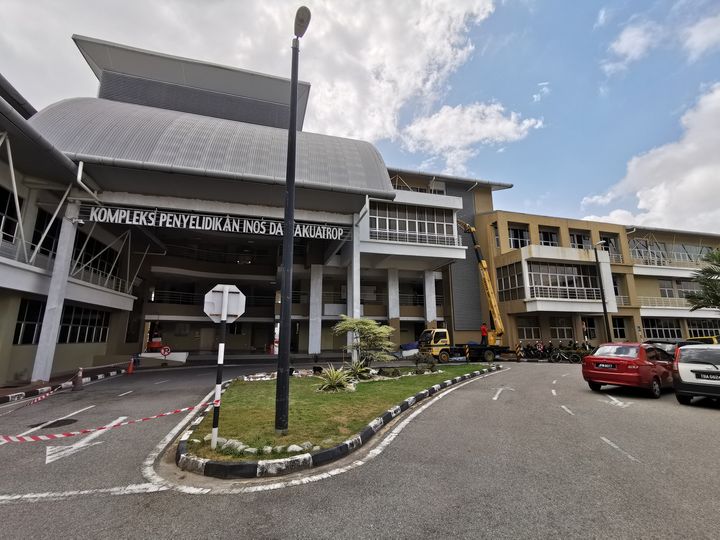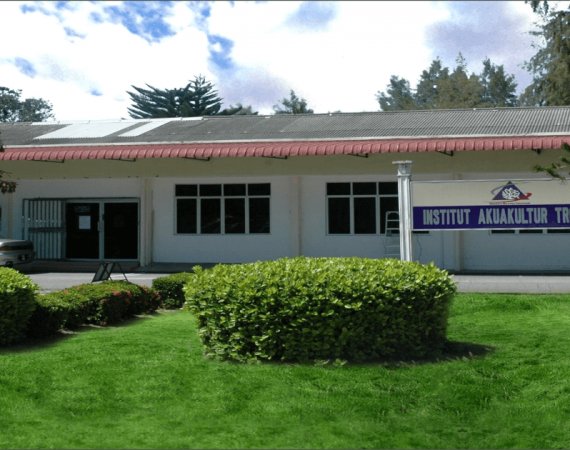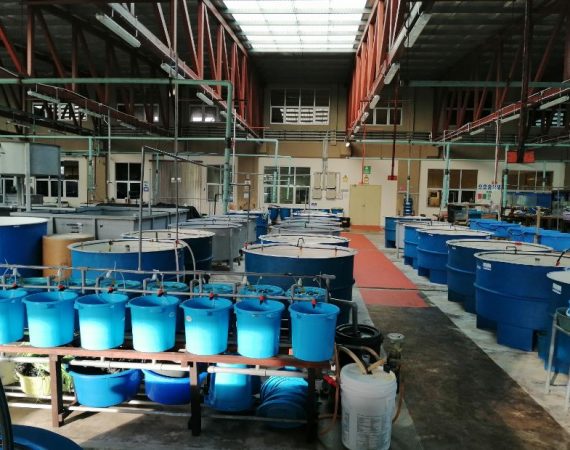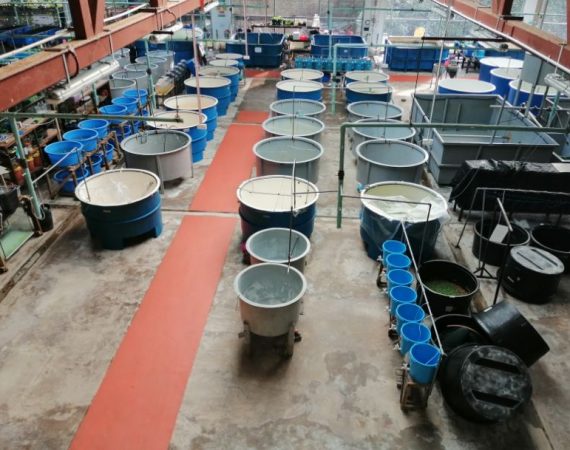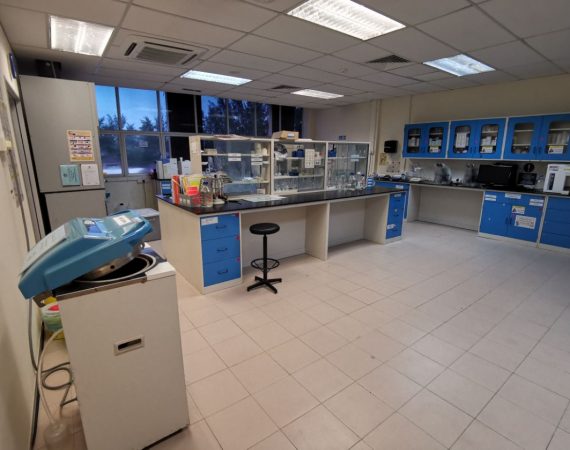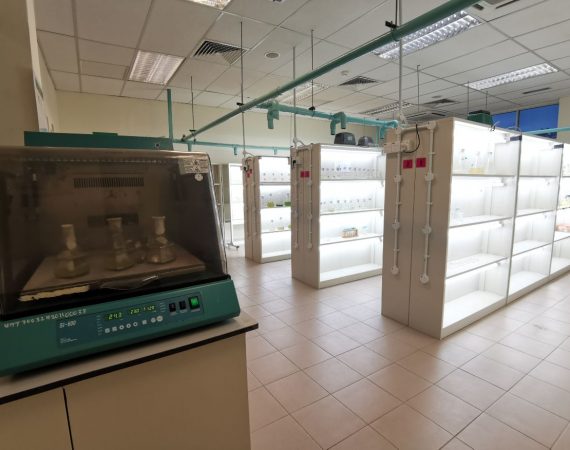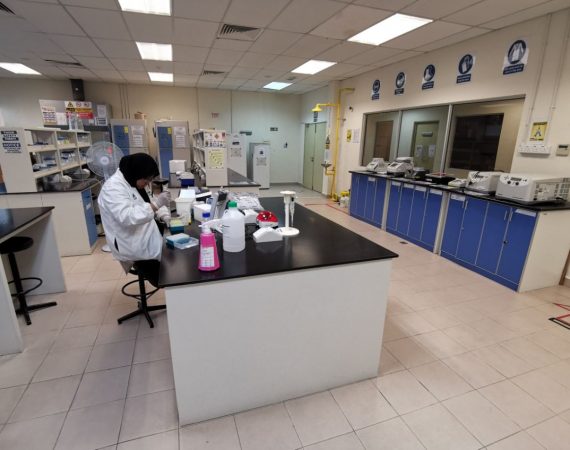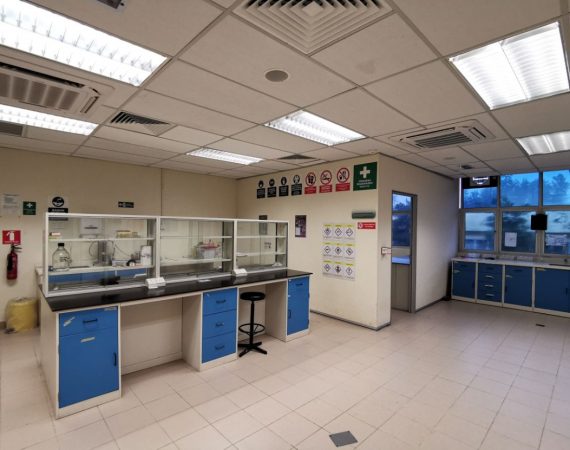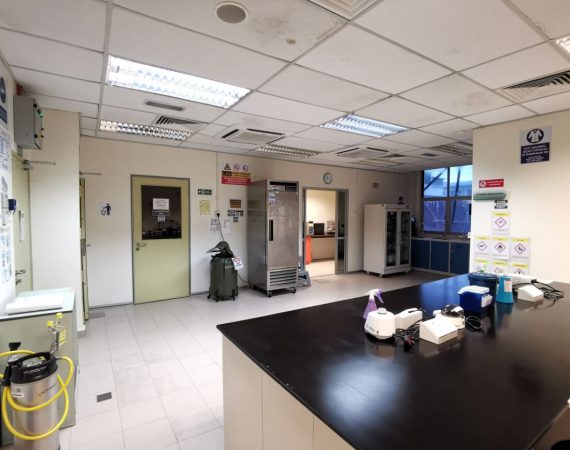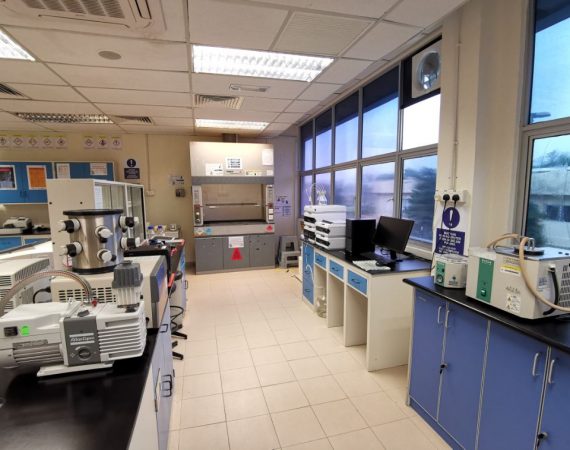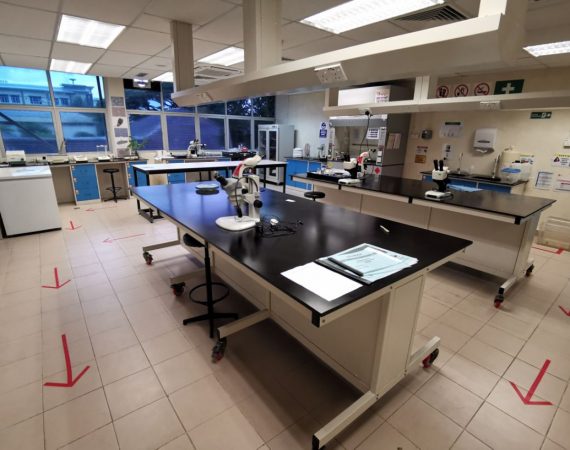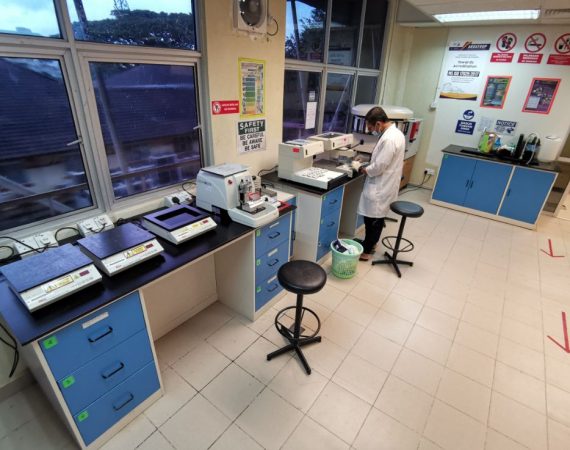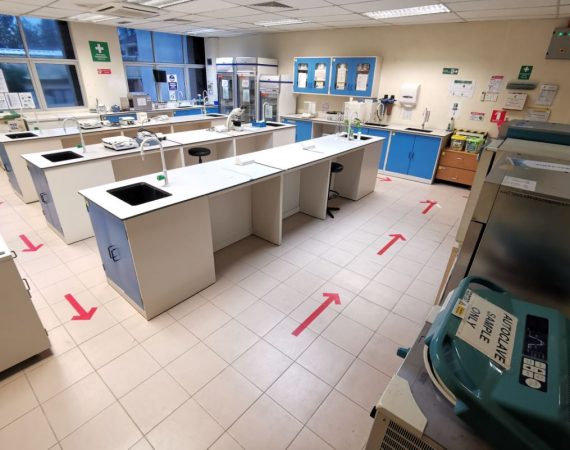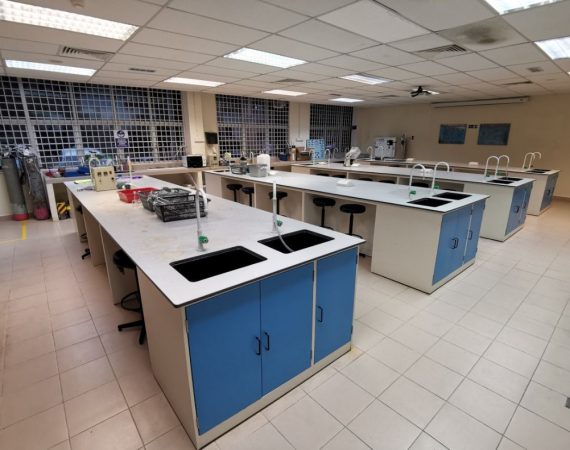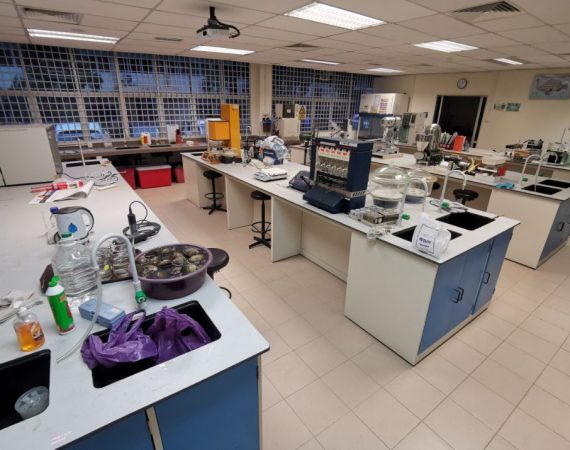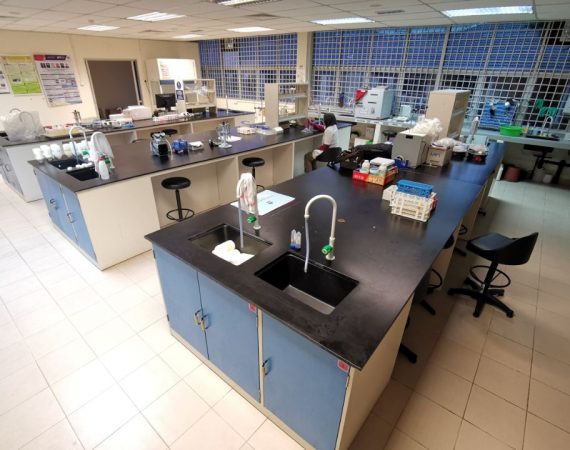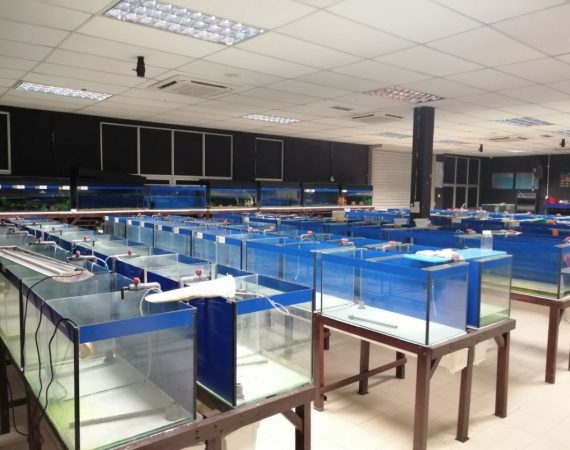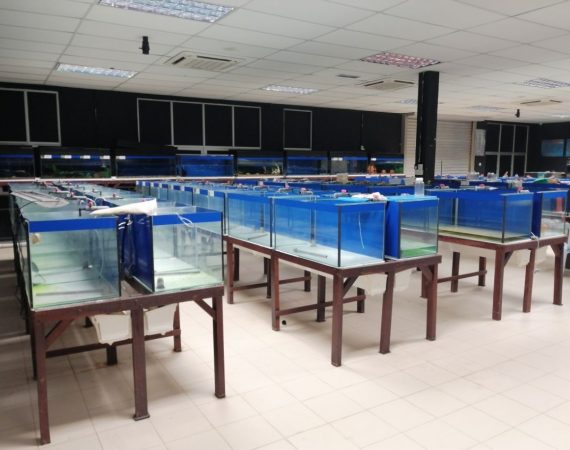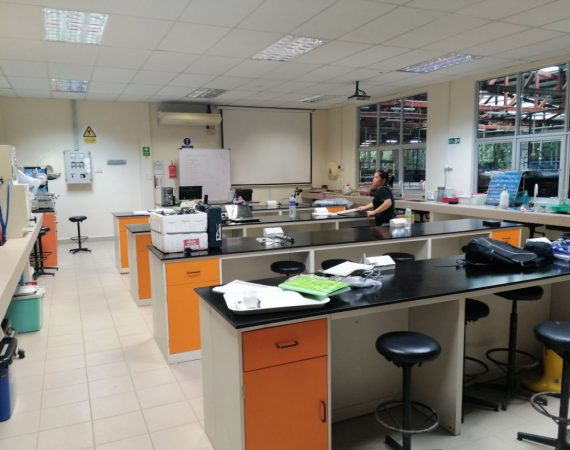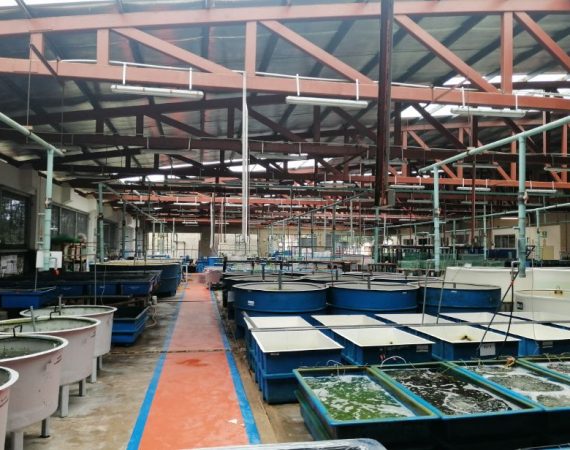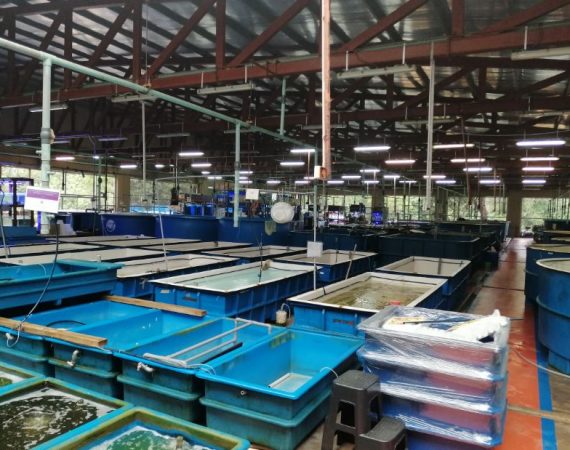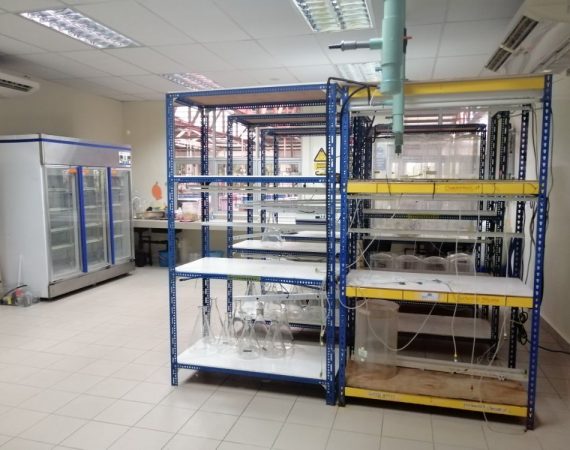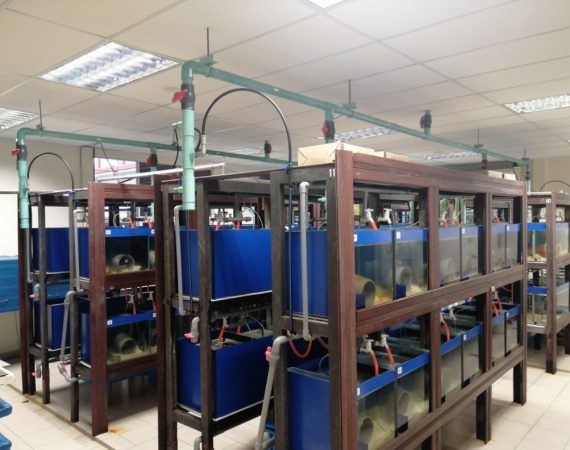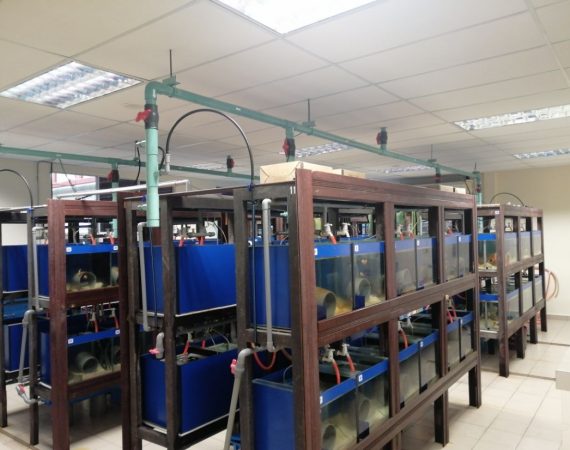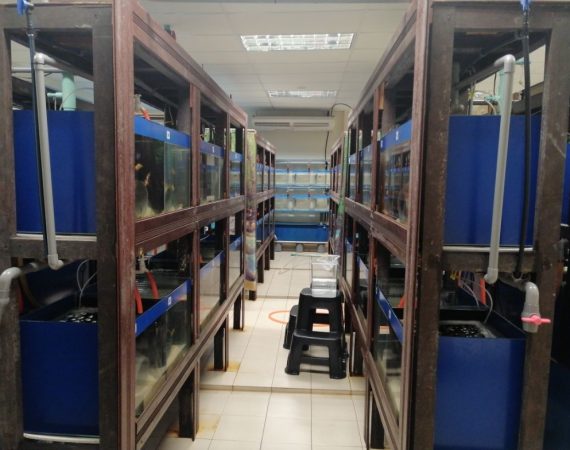HISTORY AND BACKGROUND
THE
ESTABLISHMENT
The estalishment of the Institute of Tropical Aqualculture (AKUATROP) was approved by the Ministry of Education (MOE) on July 28, 2004 and officially operated on October 3, 2004, The objective of the establishment of AKUATROP is to empower aquaculture industry through research, development and innovation (R,D&I) by increasing the productivity of fish, shrimp and other aquaculture important species. Thus, AKUATROP is recognised as the first Centre of Excellence for Aquaculture in Malaysia dedicated to conduct ‘fundamental and applied’ researches as well as capacity building in the field of aquaculture. Since its inception AKUATROP has grown over the time in terms of physical development, administration and scientific dicovery. Starting with a small administrative building and small backyard laboratories and hatchery in the yard in 2004 to 2010, AKUATROP has been progressing step by step to the current state with impressive achiements.
NEW
INFRASTRUCTURE
In August 2011, AKUATROP has been awarded a 3-storey complex consists of 45 rooms with well equipped resarch laboratories, administration rooms, tutorial room, officer and lecture rooms. Research laboratories has been devoted into Food and Nutrition Laboratory, Aquatic Animal Physiology Laboratory, Aquaculture Engineering Laboratory, Histology Laboratory, Bacteriology Laboratory, Virology Laboratory, Parasitology Laboratory and General Laboratory. In addition, AKUATROP also given a temporary hatchery to accommodate the need to carry out research in aquaculturefield, whilst the new hatchery complex was under construction.
In November 2012, the 2-storey AKUATROP hatchery complex was completed with an Administration and Operation Office, Fish Health and Quarantine Laboratory, Live Feed Laboratory, Preparation Laboratory, Aquarium and Production facilities, stores and a 500 tonnes marine water reservoirs.
The hatchery complex is used to perform R&D and production to fulfil the vision of AKUATROP as a centre of excellence in aquaculture research nationally and internationaly.
